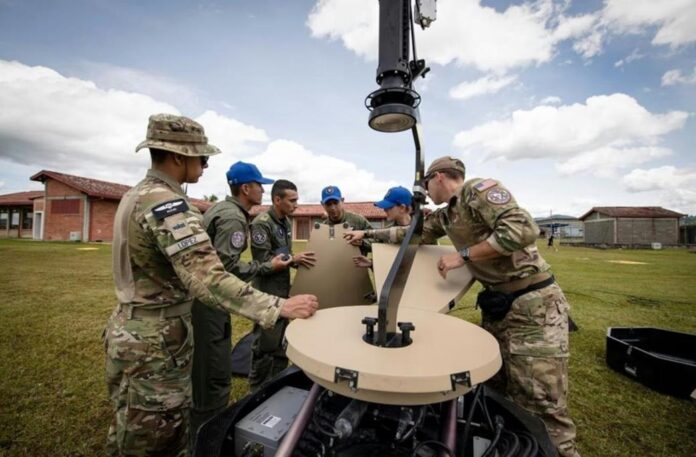Many Colombians were surprised when the government announced in 2017 that their country was becoming a NATO “global partner”. In a polarised political atmosphere, where citizens are accustomed to news and debates about combatting armed rebels and criminal groups, this development was confusing. Was the country becoming a member of the Alliance? Were Colombian soldiers to be deployed in remote war theatres? Could NATO members support Colombia if the country went to war?
For decades, Latin American nations have tried to strengthen their ties with neighbouring countries in the region. In several cases, countries have sought to reduce their dependence on global powers like the United States. Narratives of “independence” from the United States have traditionally become stronger when left-wing governments come to power. For example, during the early 2000s, the South American Nations Union (UNASUR), was developed by the left-wing governments of the so-called “pink tide” as a way to break ties with Washington while achieving unity in Latin America. Colombia was reluctant to join at first, but even after it became a member, its strong alliance with the United States was often criticised. Colombia’s partnership with NATO, some would assume, reifies an alignment between Bogota and western powers, clashing with a desire for regional unity.
But this perspective is based on an incorrect perception of what a partnership with NATO is, and what it means for a country to become a global NATO partner. Closer cooperation with NATO through its partnership programme ties into Colombia’s interest in modernising, learning, and increasing transparency in the defence sector, while supporting an international system based on the rule of law. Ultimately, the status of global partner is highly rewarding for Colombia, without constraining the foreign policy position of its government.
NATO’s global partners include Australia, Colombia, Iraq, Japan, the Republic of Korea, Mongolia, New Zealand and Pakistan. Partner countries enter into partnership with NATO based on their own security interests and needs, and with boundaries defined by the partner country and NATO. Global partners do not meet the geographical criteria to become members and are not committed to Article 5 of the North Atlantic Treaty on collective defence. There is therefore no obligation for any partner country, including Colombia, to defend any NATO Ally or vice-versa through the mechanisms of the partnership. A NATO partnership is a win-win: partners benefit from their collaboration with NATO and participation in NATO exercises, but partners also provide unique expertise and exercise opportunities for NATO Allies and other partners.
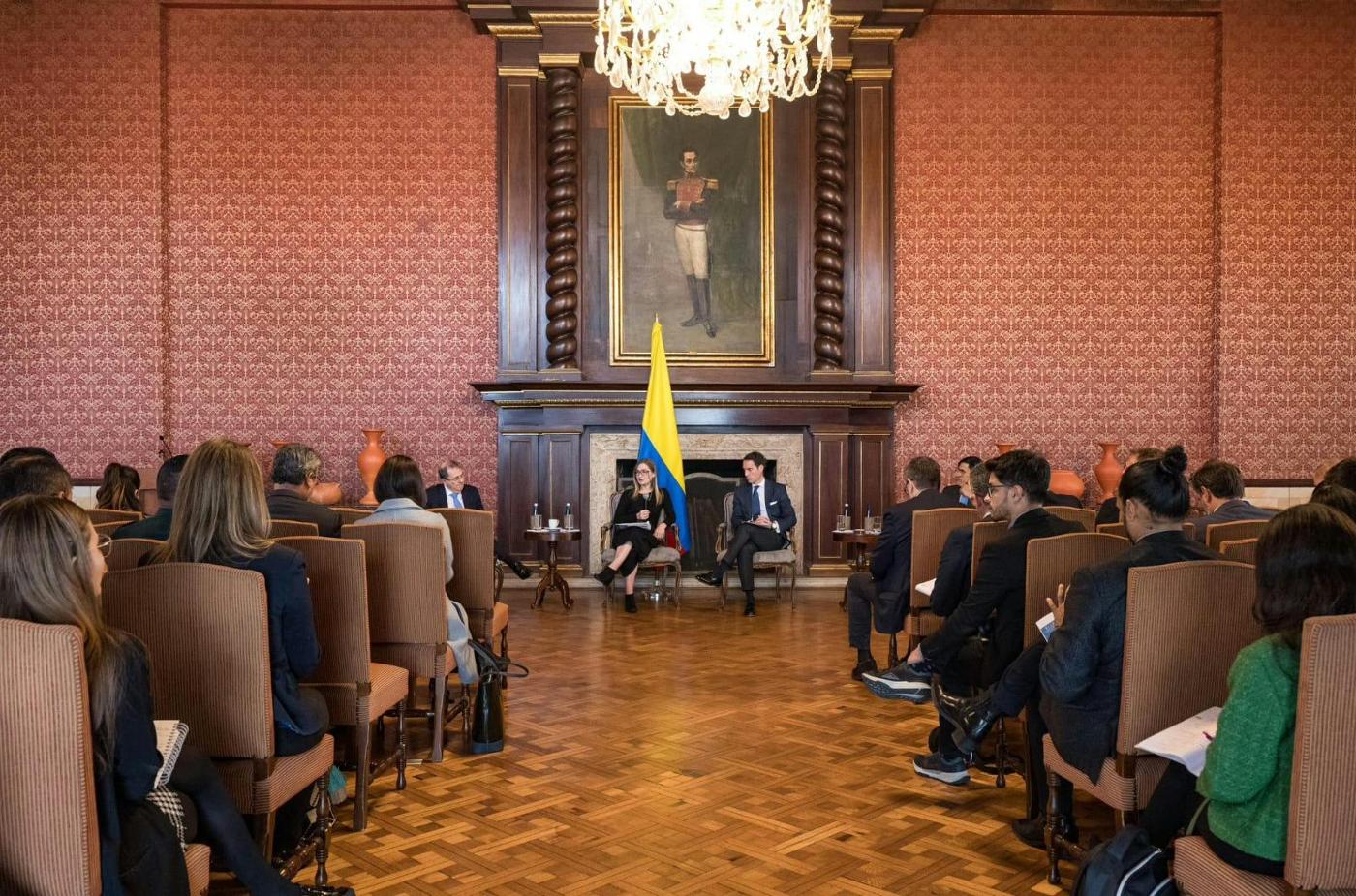
The road to partnership
The official process for Colombia to become a NATO global partner began in 2013 with the signing of an Agreement on Cooperation and Security of Information, but there has been mutual interest since the early 2000s. From the start of the millennium, there was a growing synergy of interests from the military and politicians in Colombia to come closer to NATO. In conversations with several top military officers, including a former Army Commander, they explained that for many years the Military Forces had been in close contact with the US military, and they thought a partnership with NATO was a step in the right direction, both because Colombia had a lot to offer and a lot to learn.
President Alvaro Uribe (2002-2010) had similar interests, believing a closer relationship with NATO was a positive foreign policy objective. It was in the administration of Juan Manuel Santos (2010-2018) that this idea took form. His government wanted to project Colombia to new spaces beyond Latin America, both politically and economically, through the OECD, the Alianza del Pacífico, and the Asia Pacific Economic Cooperation (APEC), for example. Since Colombia had built considerable capacities in irregular warfare and was nearing a peace agreement with the longest-running rebel group, it was ready to help others in the fight against criminals and insurgents. An ambitious Security and Defence Diplomacy programme was created, which included the objective of a partnership with NATO, thereby adding a military dimension to the foreign policy objective.
The Agreement on Cooperation and Security Information of 2013 was focused on exchanging information, especially in regard to organised crime. Colombia primarily wanted to contribute to the global fight against illicit drugs, but the Colombian Minister of Defence at the time stated that there was a wider interest in learning about peace missions, humanitarian missions, and human rights in the defence sector.
By 2017, the relationship had evolved, and the interests between the parties multiplied. Colombia realised it had much to learn from NATO in terms of interoperability, standards, transparency, gender and security, and cybersecurity, among other issues, and the Alliance understood that, after six decades of internal conflict, Colombia’s experience in irregular warfare could be useful for other countries to learn from. The struggle against armed groups, including both left-wing and right-wing groups, demanded capacities and skills including special operations counterinsurgency, counterterrorism, and peace support operations. Since illicit economies – especially the cocaine market – had become a key source of funding for almost all armed groups, the Military Forces of Colombia had also learned about countering organised crime, illicit crop eradication, interdiction, and building an atmosphere conducive to the development of licit economies.
That year, an Individual Partnership Cooperation Programme (IPCP) was signed, conferring upon Colombia the status of NATO global partner. It was the first, and remains at present, the only global partner in Latin America.
In 2021, a new partnership framework called an Individually Tailored Partnership Programme (ITPP) was signed between Colombia and NATO. The ITPP organises Colombia’s partnership with NATO on terms that are individually tailored to the country’s specific security and defence objectives. Presently, Individually Tailored Partnership Programmes (ITPPs) are the main tool that NATO uses to coordinate its cooperation with partners. Colombia was the first partner country to sign an ITPP.
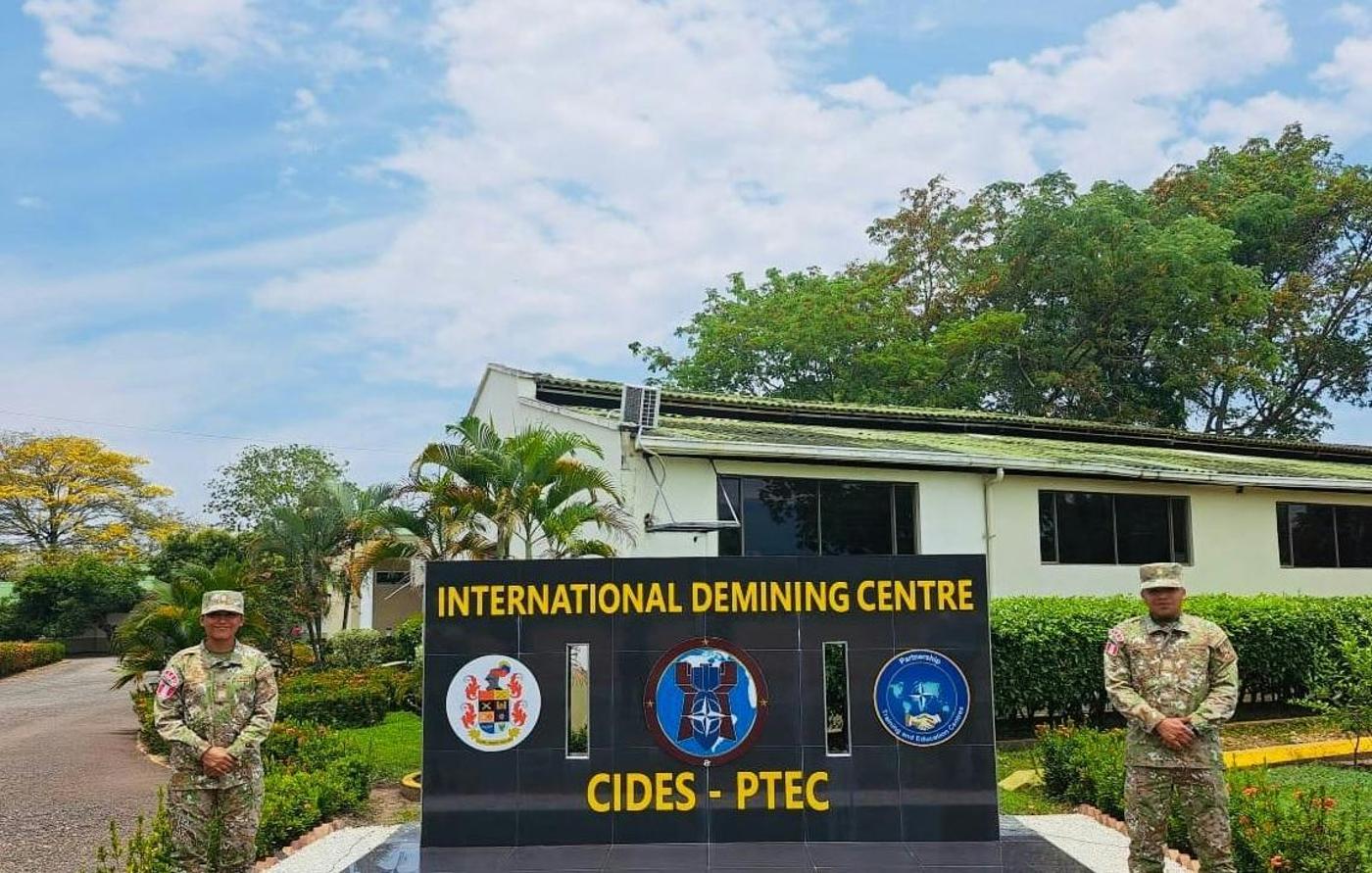
In addition to dealing with irregular warfare, demining was a particular skill that the Colombian military had built over the years. As a tactical defence strategy, armed groups planted mines over vast expanses of Colombian territory, requiring significant demining. For this purpose, the Centro Internacional de Desminado: the International Demining Centre, or CIDES, was created in the Tolemaida fort in central Colombia, one of the main military complexes of the National Army. The level of excellence of this Centre, the unique skills and knowhow of its people, and the interest of other nations to be trained in this capacity, led to its accreditation as a NATO Partnership Education and Training Centre (PTEC) in 2019. 33 PTECs are hosted by 26 different Allied and partner countries around the world. In May 2022, CIDES hosted the annual PTECs Conference of Commandants for the first time.
What is in the Colombia-NATO ITPP?
The ITPP lays out all aspects of NATO’s collaboration with Colombia in a strategic and goal-oriented way. Based on my conversations with subject matter experts, it sets an agenda of 11 specific areas, each of which contain several milestones as indicators of the implementation: consultation and dialogue, counterterrorism, crisis management, education and training, building integrity, capacity development and interoperability, military interoperability, languages, public diplomacy, cyber-defence and climate change. Based on my conversations with subject-matter experts at the Colombian Ministry of Defence, one could argue that the ITPP between NATO and Colombia is based on four main objectives:
- To defend the principles of democracy, rule of law, personal liberties and human rights. It may be easy to forget that NATO is not only a military alliance, but a political alliance as well. Above all, NATO is a community of nations that share common values. Colombia has extolled the very same values throughout its history, in spite of its own challenges to become a better democracy. These shared principles bind Colombia and NATO as part of the same community in an international system in which authoritarianism, populism, disinformation and extreme polarisation are progressively eroding democracies.
- To professionalise the Military Forces of Colombia and to strengthen national capacities to address security challenges. As previously mentioned, the Colombian military had to build outstanding capacities to fight criminal and insurgent groups. In this process there were considerable achievements, but also challenges and errors. NATO offers opportunities for Colombia to improve its military standards through closer ties and trusted relationships with some of the most powerful militaries in the world.
- To contribute to international order, respecting international law. In line with the first objective, Colombia has consistently promoted a foreign policy based on respect for international law. Throughout history, despite different political leanings and contexts, Colombian governments have tended to support an international order based in norms and the rule of law.
- To work towards the integration of gender perspectives in the defence sector, maintaining the highest standards for the protection of human rights, integrity and good governance. This is a key objective which we’ll touch upon again later. Some of the criticisms of the Military Forces of Colombia in recent years are related to corruption and transgressions against human rights. There is still much to do to transform the deeply “masculine” and patriarchal atmosphere in the Colombian military.
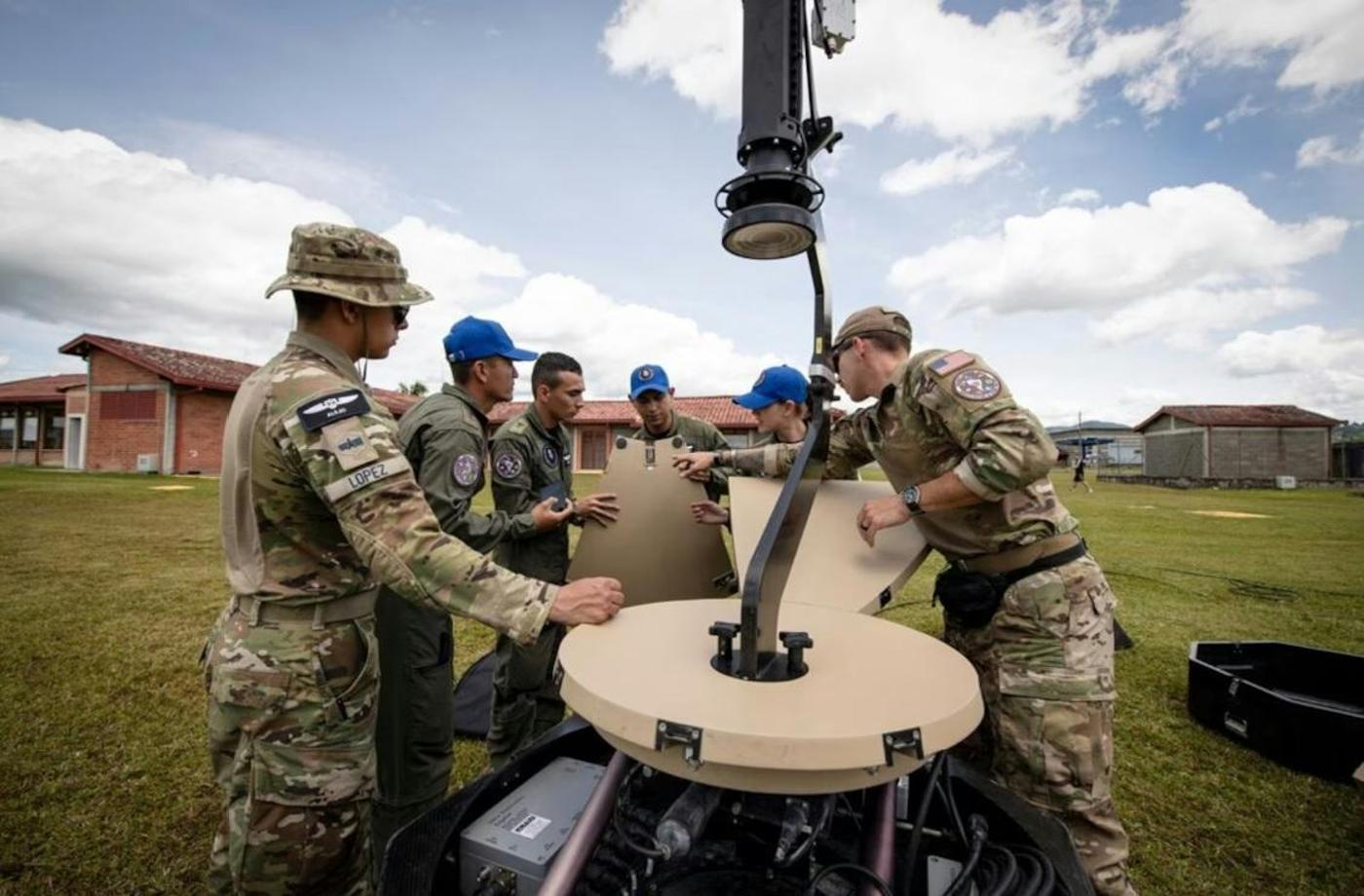
Photo © US Space Command
What’s in it for Colombia?
Regardless of its partnership with NATO, Colombia maintains the freedom to assume whichever position it deems appropriate regarding all international security affairs, according to its foreign policy priorities. Some voices in Latin America misinterpret or ignore the nature of the relationship with NATO and posit that the partnership erodes Colombia’s liberty of action and clashes with the interest of achieving a unity of Latin American nations. This is not correct, as the partnership is based on a tailored agenda set by the ITPP, which focuses on specific areas that aim to elevate the quality and standards of the Colombian military and increase stability within the country.
NATO is a political-military organisation with more than 75 years of history. It promotes the highest standards in military doctrine, training, defence planning and interoperability between Allies. Through its partnership programme, it shares information, experiences and lessons learned with its partner countries. The ITPP offers a range of programmes and instruments that are ideal for a nation like Colombia to improve its technical capacities in the defence sector. Through the partnership, Colombia can improve its military standards and technical conditions in areas ranging from military interoperability to human rights.
In the case of Colombia, as in other nations in Latin America and the global south, levels of corruption are high, and the lack of transparency from governing bodies is pervasive. Corruption has always been at the centre of political debate, and the defence sector is not immune. Government scandals related to corrupt practices, abuses of power, and nepotism have not been uncommon throughout Colombia’s history.
The Military Forces of Colombia has also been the subject of cases of human rights transgressions and abuse. People continue to criticise the military and reject military-centred approaches to quelling internal conflict due to the “false positives” scandal which emerged in the 2000s, where civilians were killed and dressed as guerrilla fighters to magnify the success of counter-guerrilla operations. The scandal devastated the legitimacy of the military.
One example of how Colombia’s partnership with NATO helps to address corruption and improve the standards and legitimacy of Colombia’s military is the Building Integrity (BI) Programme, a mechanism through which transparency standards can be increased in the defence sector. The programme has an established process: the so-called NATO BI Self-Assessment and Peer Review Process, with a specific step-by-step methodology to assess the conditions of transparency and good governance of defence institutions in nations that voluntarily submit to an evaluation. Colombia joined the BI Programme in 2013, before becoming a global partner. It agreed to submit the Self-Assessment Questionnaire and to be assessed in the Peer Review Process. The process was completed in 2016. In October 2020, the Ministry of Defence decided to participate, for a second time, in the process. On this occasion, it was completed in September 2023 with the official submission of the final report with recommendations by the then NATO Deputy Secretary General to the Colombian Defence Minister during his official visit to NATO Headquarters. The NATO recommendations provide impetus for further reforms.
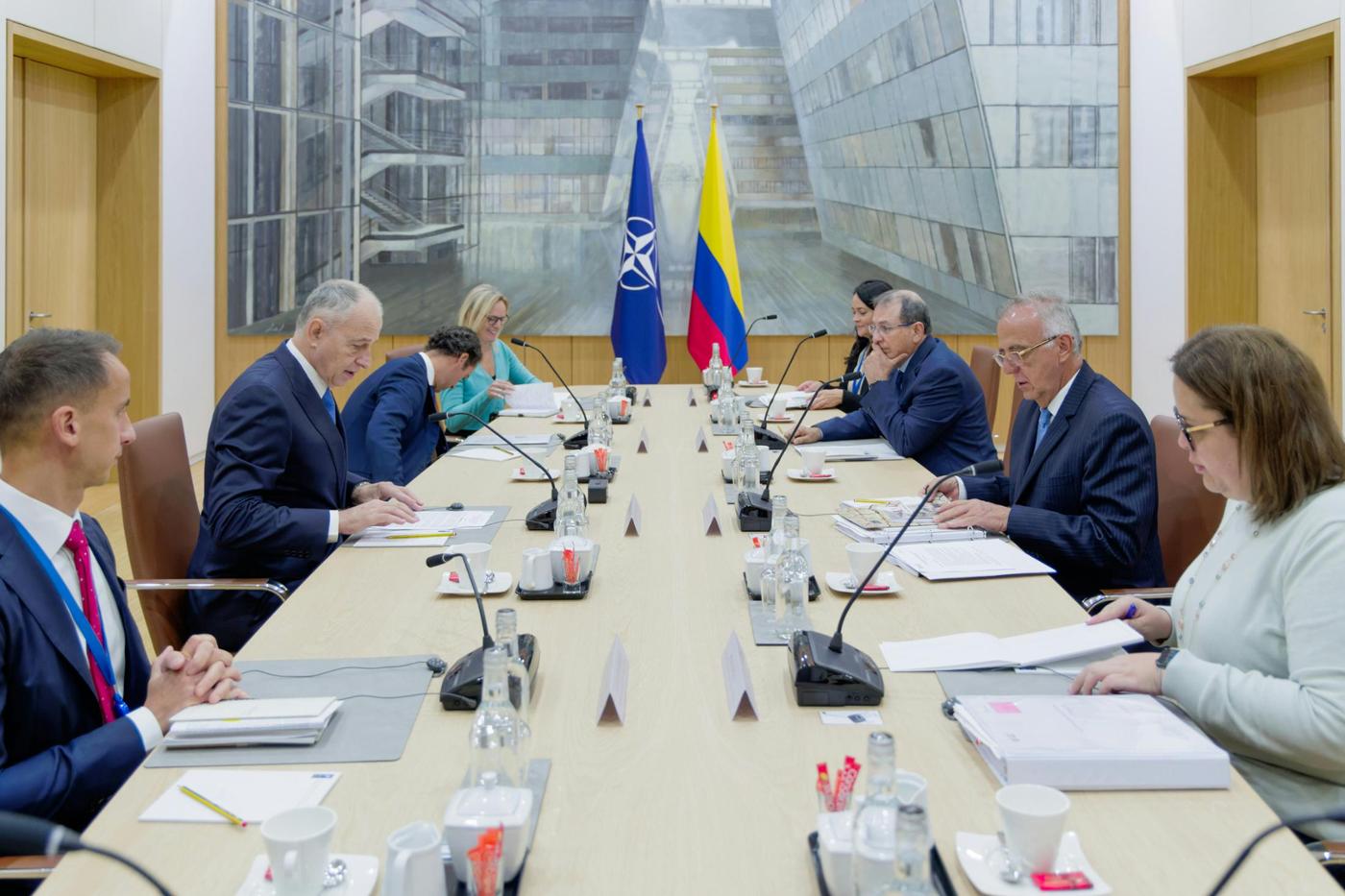
In a public diplomacy event in Bogota focused on the BI agenda, officers from Colombia and NATO explained how this process had been fruitful for Colombia. By 2016, the Army had created an Office for the Application of Norms for Transparency and Ethics (DANTE), and by 2018, the Joint Command created a similar office, motivating the Air Force and the Navy to create their own offices: OFINT and DELTA, respectively. Specific plans and programmes have been created to include transparency norms in the processes and units of the military. NATO Allies also benefit from these assessments, which collect knowledge about how to address the problems of corruption, good governance and transparency in defence and political sectors.
Through the ITPP, NATO also provides training and education opportunities for the Colombian Forces. As previously mentioned, there are 33 NATO accredited Partnership Training and Education Centres (PTECs) which offer courses ranging from conflict resolution and peacebuilding, to personnel recovery and mountain operations. Members of the Military Forces of Colombia are already being trained in several of them. Between 2019 and 2023, more than 200 Colombian civilian and military officers joined courses on BI, cyberterrorism, strategic communications, gender, crisis management, language and logistics. They are selected based on their trajectory, experience, roles and position within the military so that they can effectively contribute to the mission of the Military Forces on their return. They serve as knowledge multipliers through the Forces, informing their peers and improving their surroundings.
Colombia can also learn a lot from the Alliance in regards to cyber capabilities. In 2024, a Colombian officer participated in NATO’s Coalition Warrior Interoperability Exercise (CWIX). The officer was the first participant from a Latin American country. Since 1999, CWIX has brought together professionals and officers from different backgrounds in Allied and partner countries to improve interoperability with digital and computer systems and platforms. The 2024 edition was NATO’s largest ever cyber exercise, with over 2500 participants on-site, including engineers and operators who tested more than 480 capabilities, ranging from innovative extended reality goggles to battle-tested geospatial situational awareness tools. With cyberspace becoming one of the main domains in contemporary warfare, and cyberattacks looming from a wide variety of actors, it is only natural that Colombia, and all NATO partner countries, will benefit significantly from participation in these exercises. As mentioned before, partnerships are two-way streets, so partner countries benefit from exercises with and access to NATO Allies, and NATO and its members learn from the experiences and input of partner countries.
What is obvious is that, even for a South American country, distant from the North Atlantic area and relatively remote to many of its geopolitical concerns, a partnership with NATO is highly rewarding. This article shared just a few examples of the wider agenda through which the Colombian Military Forces are improving standards and capabilities to adapt to the global challenges of the 21st century and committing to advancing human rights, accountability and transparency. As a political forum, which promotes dialogue and debate between Allies and partners, NATO is essential in an international system that is continuously challenged by authoritarian actors. Having access to this forum, as a global partner, allows Colombia to participate in these important conversations. In sum, Latin Americans should not be concerned that Colombia’s partnership with NATO supports a supposed ‘imperialist’ agenda or provides a bridge for global powers to dominate Latin America. These ideas are demonstrably mistaken. Indeed, other countries in Latin America should look to Colombia’s example, see the benefits of its partnership with NATO, and discuss the advantages of following in Colombia’s footsteps.
- Oscar Palma is an Associate Professor at the Faculty of International, Political and Urban Studies and is the head of the NATO-Colombia Insights academic initiative at Universidad del Rosario in Colombia. He holds a PhD in International Relations from the London School of Economics.
